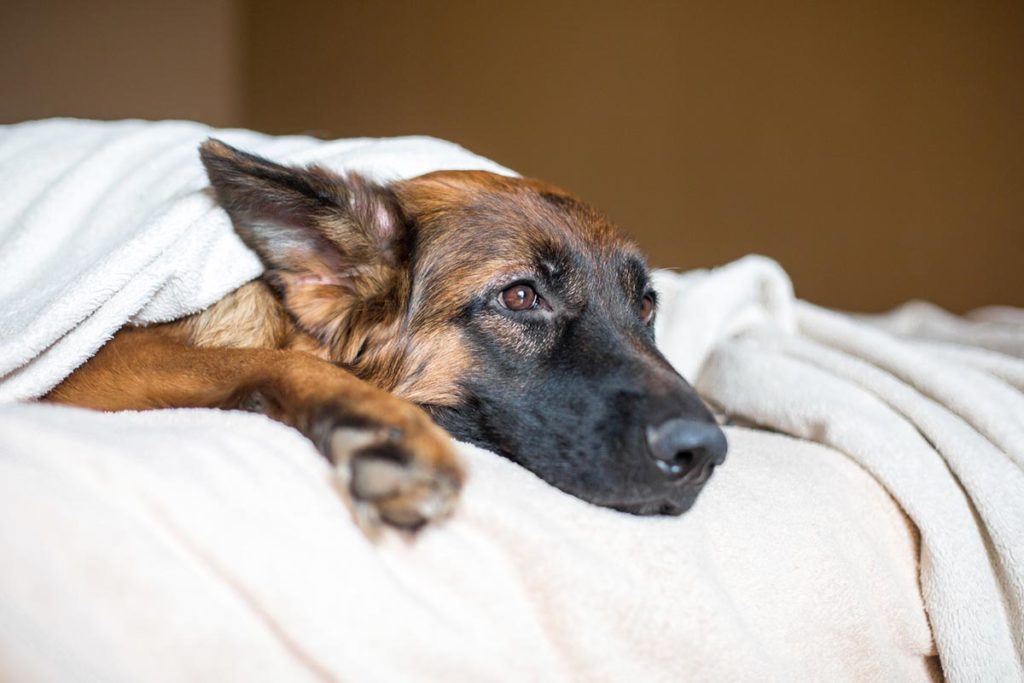Canine Influenza is different from the human flu. The good news is that there have been no reported cases of canine influenza in humans. There have been some cases reported among cats.
Learn everything you need to know about canine influenza by reading our Dallas, TX, animal hospital‘s article below.

What Is Canine Influenza?
Canine Influenza is also known as the “dog flu”. it is different from the flu variations that affect humans. Whereas our flu changes every season, canine influenza is primarily caused by two flu strains. These two Type A strains of the flu are H3N8 and H3N2.
While there are no reported cases of canine Influenza effecting people, the flu constantly changes. This means sometime in the future canine influenza might be able to affect people.
H3N8 was originally an equine flu that affected horses. It spread to dogs and now has a canine variant that can affect all dog breeds.
H3N2 originated in birds and jumped to dogs. This virus can also affect cats. The good news is that canine influenza is rarely deadly. However, pets with compromised immune systems or who are elderly or young are at higher risk of death.
Vaccines are available for canine influenza. If your dog never goes anywhere, then your most likely doesn’t need the vaccines. However, if your dog likes visiting parks or if you take them to the groomer or a kennel, they can get sick. Vaccines are recommended for most dogs.
Symptoms of Canine Influenza
Symptoms of canine influenza will not appear immediately. Similar to with humans, it takes a bit for the virus to incubate. Canine influenza typically takes about 10 days to show up. Dogs can then be contagious for up to 26 days.
Symptoms of Canine Influenza include:
- Coughing
- Fever
- Sneezing
- Runny eyes
- Nasal discharge
- Lethargy
- Difficulty breathing
Many of these symptoms are also the symptoms of kennel cough. In both cases, it is important to contact your vet for a diagnosis and treatment.
Diagnosing Canine Influenza
Due to the fact that canine influenza shares a number of symptoms with other respiratory problems, it cannot be diagnosed simply by looking at symptoms. Luckily, your vet can test for canine influenza. Testing is the most accurate way to determine if your dog has the flu.
Treatment of Canine Influenza
Canine influenza is a viral illness. Unfortunately, this means that supportive medication is all that is available. Your vet can prescribe medications to help with the symptoms and to make your dog more comfortable while they are sick.
It is important to keep your dog hydrated. Make sure to keep their water bowl full.
You may be tempted to give them treats, such as human food. However, a healthy diet helps them fight off sickness. It is best to avoid human foods unless they are plain. Good options for human food treats are scrambled eggs, cooked chicken, cooked pork, or cooked beef. Be sure not to add any seasonings, since these can be harmful, like onions and garlic.
Treating the symptoms of canine influenza is important because left untreated the flu can turn into pneumonia. Pneumonia can lead to hospitalization and even death.
Important Considerations
Keep Your Sick Pet Away from Any Other Pets
While they are sick, you should quarantine them away from healthy animals. Since they are contagious for up to 26 days, keep them away from pets for 3-4 weeks after symptoms appear. You may want to wait up to a week after symptoms disappear.
Keep the Symptom Treatment Going
You may want to keep treating them for the flu even after symptoms go away as it can come back if it isn’t completely gone. Your vet can recommend whether an extra week of treatment might be beneficial.
Cancel Your Dog’s Social Plans and Appointments
Cancel appointments with groomers, kennels, pet hotels, etc. Canine influenza is very contagious. If you have any plans for your dog while they are sick, you need to make new plans. If you are going out of town, and it cannot be rescheduled, consider an at-home dog sitter.
Keep Things Clean
Anything your dog may have interacted with should be cleaned. Keep the area where your dog is staying clean. This will help them fight off the flu and it will prevent others from getting it.
Our Dallas, TX, Animal Hospital Offers the Canine Influenza Vaccine
While canine influenza is rarely deadly, it is very contagious. Please be aware of other dogs and risks. Call your vet and get your dog tested if you suspect they might be sick.
When it comes to canine influenza, prevention is key. Our Dallas, TX, animal hospital offers the canine influenza vaccination. Reach out to us to schedule your dog’s vaccine appointment by giving us a call at (214) 826-4166.


 Have an Emergency?
Have an Emergency?